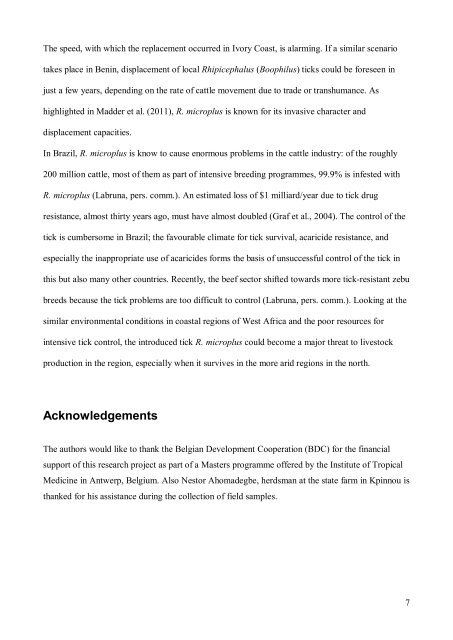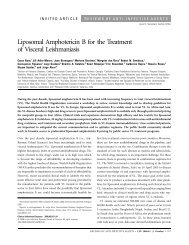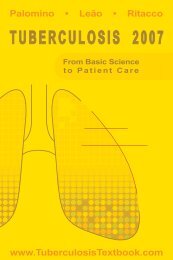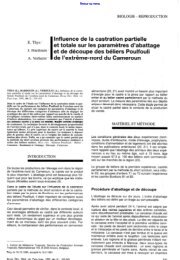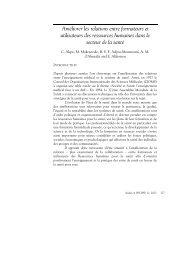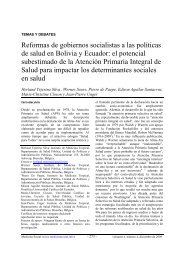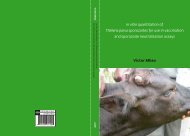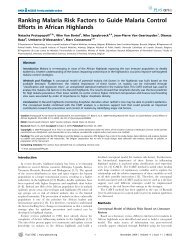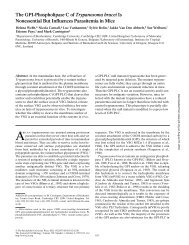Author template for journal articles - Itg
Author template for journal articles - Itg
Author template for journal articles - Itg
You also want an ePaper? Increase the reach of your titles
YUMPU automatically turns print PDFs into web optimized ePapers that Google loves.
The speed, with which the replacement occurred in Ivory Coast, is alarming. If a similar scenariotakes place in Benin, displacement of local Rhipicephalus (Boophilus) ticks could be <strong>for</strong>eseen injust a few years, depending on the rate of cattle movement due to trade or transhumance. Ashighlighted in Madder et al. (2011), R. microplus is known <strong>for</strong> its invasive character anddisplacement capacities.In Brazil, R. microplus is know to cause enormous problems in the cattle industry: of the roughly200 million cattle, most of them as part of intensive breeding programmes, 99.9% is infested withR. microplus (Labruna, pers. comm.). An estimated loss of $1 milliard/year due to tick drugresistance, almost thirty years ago, must have almost doubled (Graf et al., 2004). The control of thetick is cumbersome in Brazil; the favourable climate <strong>for</strong> tick survival, acaricide resistance, andespecially the inappropriate use of acaricides <strong>for</strong>ms the basis of unsuccessful control of the tick inthis but also many other countries. Recently, the beef sector shifted towards more tick-resistant zebubreeds because the tick problems are too difficult to control (Labruna, pers. comm.). Looking at thesimilar environmental conditions in coastal regions of West Africa and the poor resources <strong>for</strong>intensive tick control, the introduced tick R. microplus could become a major threat to livestockproduction in the region, especially when it survives in the more arid regions in the north.AcknowledgementsThe authors would like to thank the Belgian Development Cooperation (BDC) <strong>for</strong> the financialsupport of this research project as part of a Masters programme offered by the Institute of TropicalMedicine in Antwerp, Belgium. Also Nestor Ahomadegbe, herdsman at the state farm in Kpinnou isthanked <strong>for</strong> his assistance during the collection of field samples.7


